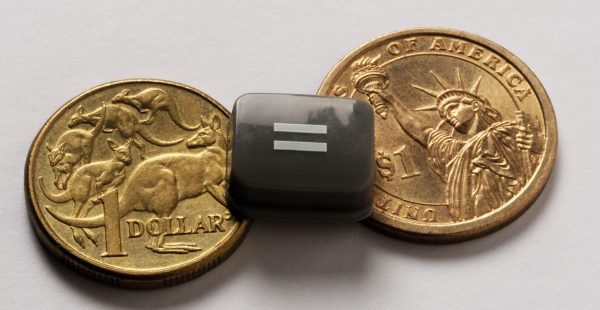ETF investment inflows hit new record in 2023, as unlisted funds tank

Australia’s Exchange Traded Fund (ETF) industry recorded its biggest annual increase in funds under management (FUM) last year, up 11% on 2022’s inflows, new figures from ETF specialist investment firm and top ETF issuer Betashares reveal.
In total, the Australian ETF industry received $15 billion of net inflows last year, according to Betashares Australia’s ETF Review – Full Year 2023 report, up from $13.5 billion in 2022.
While still down on the highwater mark of $21.8 billion reached in the 2021 calendar year, the 2023 inflow bump represents a strong showing in a difficult year for equities investors – particularly against struggling managed fund offerings.
The Australian ETF industry ended the 2023 calendar year at an all-time high, with a total industry market cap, or FUM, of $177.5 billion.
The local ETF sector grew $43.7 billion in 2023, representing a 33% year-on-year jump – an industry record in dollar value annual growth.
Two-thirds of this growth came from market appreciation, Betashares noted, with the remainder deriving from investor inflows and unlisted fund conversion activity.
The significant inflow to ETFs lies in stark contrast to the unlisted funds sector, which, according to Betashares, recorded its “worst year on record”.
Sustained net outflows for unlisted funds hit negative $36.9 billion, figures from Morningstar reveal, marking a significant turnaround from the $32.1 billion of inflows reached in 2021.
“Most strikingly of all”, Betashares said, since 2001 – the genesis of Australia’s ETF industry – cumulative net flows in the Australian unlisted managed funds industry are now negative.
“This clear investor preference for ETFs, plus the increasing ‘conversion’ activity we’re seeing of unlisted managed funds into active ETFs, represents a significant ‘changing of the guard’ in the Australian asset management industry.”
Betashares predicts another bumper year for ETFs in 2024, with the sector expected to benefit from “increased investor adoption and inflows combined with positive markets”.
The firm forecasts total industry FUM at the end of 2024 will exceed $200 billion, potentially reaching as high as $220 billion depending on market conditions.
ETF trading down slightly, but growth elsewhere
Trading volumes took a slight hit in 2023, with annual Australian Securities Exchange (ASX) ETF trading value slipping by $2 billion year-on-year, from the record $117 billion traded in 2022 to $115 billion reached this year.
Last year was “the biggest year on record” for ETF product launches, according to Betashares, with 56 new exchange traded funds launched on Australian exchanges this year, up from the 52 funds launched in 2022.
A significant proportion of these new launches were in the emerging ‘active ETFs’ sector (46% or 26 funds), with the majority of these launches being via the creation of traded classes of existing unlisted funds.
Betashares recognised an accelerating trend towards active ETFs, which utilise professional investment fund managers to decide on the underlying investment portfolio allocation of the ETF, with at present 94 active ETFs trading on Australian exchanges with a total of around $35 billion of FUM.
Curiously despite the surge in interest and options to trade in active ETFs, the sector saw a significant retreat from actives, with around $1 billion in outflows recorded.
“In terms of product types, this year was all about passive investing,” Betashare said.
“This trend is particularly striking given the large number of active ETF launches, with the actual flow activity seemingly not dissuading managers from launching active ETF classes of their unlisted funds.”
Fixed Income ETFs were the number one broad category for inflows in 2023 (with $5.3 billion received versus $3.6 billion in 2022), marking, Betashares said, “the first time this has occurred over the course of a year since this report has been published”.
Australian Equities ETFs came in 2nd in 2023 with $5.2 billion in flows, versus $4.4 billion in 2022.
International equities ETFs “had a very quiet year”, Betashares said, receiving $2.9 billion of net inflows, versus $3.3 billion in 2022.
Betashares dominates
As reported previously by BetaShares/Investment Trends ETF Report noting that there are now over two million Australians investing in ETFs, representing year-on-year investor growth of 7%.
Betashares ranked as the number one issuer for net flows last year, with around $5.6 billion in net inflows.
Collectively the top four issuers this year – Betashares, Vanguard, Van Eck and iShares – accounted for over 100% of the industry’s flows, showing considerable concentration in the industry.
At present, Australia hosts 47 issuers of ETFs, with eight new issuers joining the market in 2023 – all of which are active managers.
Betashares Crypto Innovators ETF took the number one slot for performance, with total returns of around 215% for the year. This was followed by other crypto and technology exposures.












This is nothing new ! It has been going on for decades ! How can giving over $1,000,000 to a…
Was Previously with Charter and still in contact with former colleagues still there, your assessment is correct.
Nah, the AMP vertically intergrated model is effectively dead. It's a broad APL. It wouldn't come as any surprise that…
So let me get this right - Canberra spends an awful lot of time and effort focusing on consumer protection/compliance…
Just wind them up please so the rest of the financial planning industry can move forward without an albatross around…